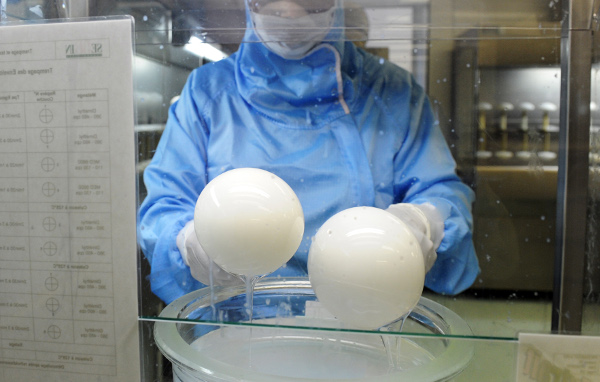A French court on Friday ordered German safety certifier TUV to pay 60 million euros ($64 million) in compensation to 20,000 women who received defective breast implants that the group had approved.
TUV Rhineland was ordered to make a provisional payment of 3,000 euros to each plaintiff for certifying that implants made by French firm Poly Implant Prothese (PIP) met safety standards.
In the far-reaching health scandal, the devices were later found to contain substandard, industrial-grade silicone gel that was seven times cheaper than medical-grade silicone.
“The final amount will be determined after an assessment, but (TUV) is required to make a provisional payment of 3,000 euros” per person, said lawyer Laurent Gaudon, representing 7,000 women.
Another lawyer Olivier Aumaitre, representing some 13,000 women, praised the commercial court in the southern port of Toulon for a ruling he said was inevitable given “TUV's glaring negligence”.
TUV's lawyer Cecile Derycke said the firm would appeal the latest ruling in a long-running saga.
The court “persists in ignoring very clear elements of the PIP dossier that establish that (TUV Rheinland) fulfilled its mission of a certifying body with diligence and full conformity with applicable regulations,” she said in a statement.
The Toulon court in 2013 ordered TUV to pay 53 million euros to six foreign distributors of the implants as well as 1,600 users.
But an appeals court later overturned that decision, saying that TUV had fulfilled its obligations as a certifying body and could not be held responsible for failing to detect PIP's cover-up.
The company maintains it was never its job to check the actual implants, and their task was only to inspect the manufacturing process.
The court said that if TUV staff had carried out “the slightest unannounced inspection… the fraud would have been easily detected.”
The scandal made global headlines in 2011, the year after doctors first noticed abnormally high rupture rates in the implants.
Some 300,000 women in 65 countries, most in Latin America, are believed to have received the faulty implants.
PIP's founder, Jean-Claude Mas, was convicted of fraud and sentenced to four years in jail in 2013, confirmed on appeal in 2016.
Toxicity ruled out
Mas was ordered to pay a fine of 75,000 euros and was banned from working in the health sector or running a business
He has appealed that ruling.
Two other pending legal cases are pending against Mas, one for involuntary manslaughter — the implants were suspected in several deaths from systemic toxicity — and another linked to the financial implications of the scandal.
He always denied the implants posed any health risks.
In a setback for the plaintiffs, a scientific panel mandated by the European Commission concluded in May 2014 that the implants could not be linked to toxicity and users did not have to remove them as a precaution.
Thousands of women have had the implants removed, even though health officials in several countries have said they are not toxic and are not thought to increase the risk of breast cancer.




 Please whitelist us to continue reading.
Please whitelist us to continue reading.
Member comments